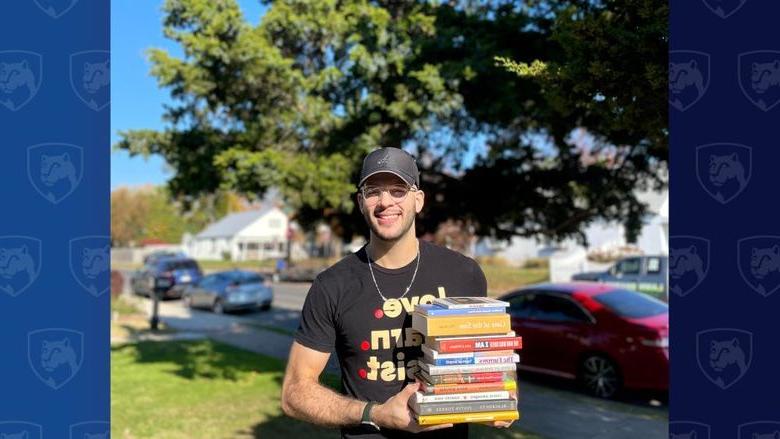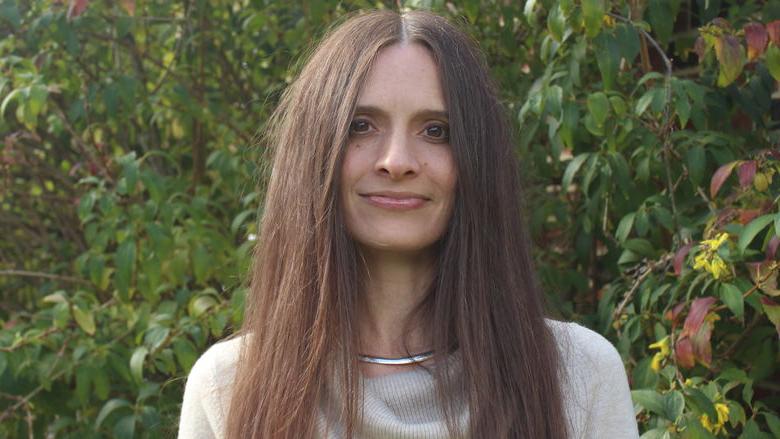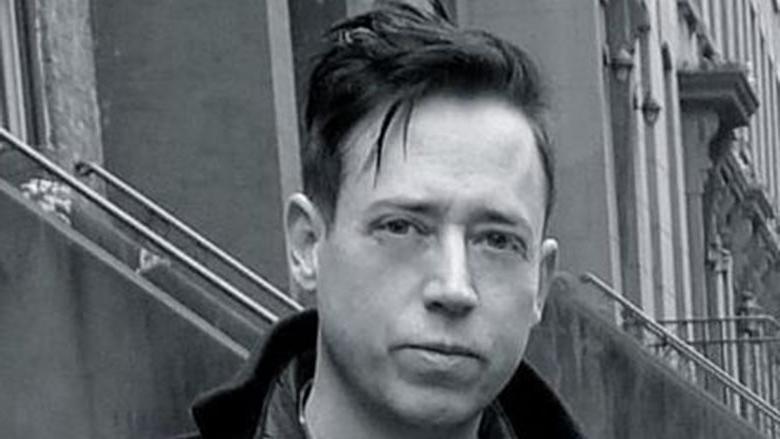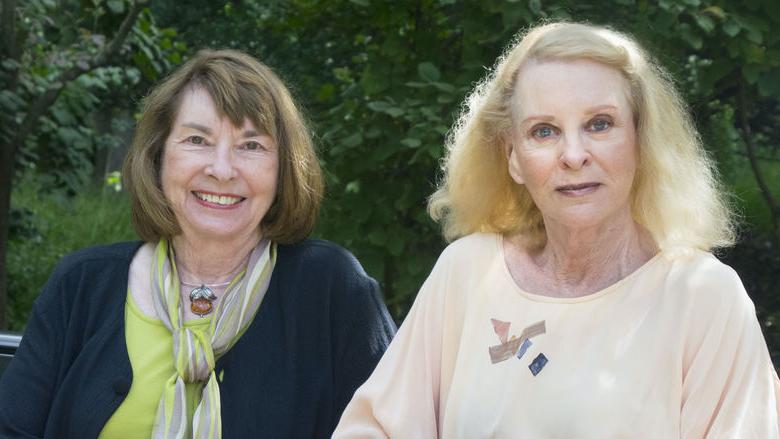Spring 2022 Course Descriptions
English Program and Writing Program
Penn State Abington
ENGLISH MAJOR REQUIREMENTS:
Traditions of Innovation
- ENGL 200 or 201: ENGL 201
- Medieval through Sixteenth Century: ENGL 455
- Sixteenth Century through Eighteenth Century: ENGL 455
- The Nineteenth Century: NONE AVAILABLE
- Twentieth Century to the Present: ENGL 433, ENGL 474
- Literature, Writing, or Rhetoric: ENGL 050, ENGL 129, ENGL 140, ENGL 194, ENGL 197, ENGL 201, ENGL 211, ENGL 215, ENGL 221W, ENGL 222, ENGL 415, ENGL 420, ENGL 433, ENGL 455, ENGL 474
- Diversity: ENGL 455, ENGL 474
- Senior Seminar: ENGL 487W
Writing and Literature in Context
- ENGL 200 or 201: ENGL 201
- Pre-1800: ENGL 455
- Post-1800: ENGL 433, ENGL 474
- Literature, Writing, or Rhetoric: ENGL 050, ENGL 129, ENGL 140, ENGL 194, ENGL 197, ENGL 201, ENGL 211, ENGL 215, ENGL 221W, ENGL 222, ENGL 415, ENGL 420, ENGL 433, ENGL 455, ENGL 474
- Diversity: ENGL 455, ENGL 474
- Senior Seminar: ENGL 487W
WRITING MINOR COURSES:
ENGL 050, ENGL 211, ENGL 215, ENGL 415, ENGL 420, ENGL 474
ENGLISH MINOR COURSES:
ENGL 050, ENGL 129, ENGL 140, ENGL 194, ENGL 197, ENGL 201, ENGL 211, ENGL 215, ENGL 221W, ENGL 222, ENGL 415, ENGL 420, ENGL 433, ENGL 455, ENGL 474, ENGL 487W
ENGL 050: Introduction of Creative Writing
Professor Heise
Want to write, but aren’t quite sure how to get started or what to write about? This course is meant to ignite your interests, hone your skills, and introduce you to the foundational elements of poetry, fiction, and creative nonfiction so as to set free your imagination. You will learn to craft images, music, lines, and narrative in the poetry we practice. In fiction, you will learn how to create characters, develop themes, modulate tone and atmosphere, plot a conflict, and manipulate setting. And you will learn to translate and reconstruct personal experience, memory, and research into arguments, scenes, and narratives for creative nonfiction. Along the way, our conversations will turn to the writing and revision process, to why one writes in the first place, and to age-old inexhaustible questions, such as, what are the functions and purposes of poetry, short story, and the essay, what is the difference between truth and fact, and what are the ethics of writing about our own lives and the lives of others. In this course, you’re a writer. And that means you will be writing in an exercise of imagination and perseverance. ENGL 050 welcomes all students interested in creative writing: no previous creative-writing experience is necessary.
ENGL 197Z: Shakespeare
Professor Nicosia
These linked English and Theatre courses will culminate in an original performance inspired by Shakespeare's The Winter's Tale. Students must enroll in both courses to fulfill the Interdomain requirement.
ENGL 197Z is designed to introduce students to Shakespeare and his world. Students of all levels are welcome and no prior experience is required or assumed. As we study The Winter's Tale, we will analyze its genre, dramatic structure, and language; how it engages with social and political issues of Shakespeare's time and our own; and we will pay particular attention to how the play comes to life on the page and on the stage. THEA 197Z is a studio-based class in which students will learn tools and techniques for devised theater, or making original performance from scratch. In the first part of the semester, we will build general skills in devising; in the second, we will apply these skills to collaboratively creating an original performance inspired by Shakespeare's The Winter's Tale. Through these linked courses, students will have the unique opportunity to simultaneously study both Shakespeare and devised theater as well as create an original performance and present it to the campus community in April 2022.
ENGL 140: Contemporary Literature
Professor Heise
This introductory course dives into the diverse, discordant, and often dystopian world of fiction published since 1990. Our readings will lead us into discussions of plot, theme, biography, and genre, but they will also help us begin to zero-in on some of the major cultural, social, and political flashpoints over the last thirty years. We will look for the ways these novels express critical issues of our time, such as the increase in income inequality, ecological devastation, enduring questions about racial and ethnic identity, and the legacies of colonialism. In addition to these weighty issues, our novelists also ask us to think about human interconnectedness and love, the changing role of the artist, and the all-too-common dysfunctionality of families. The course’s lectures will engage theoretical and historical texts that will aid in framing recent fiction within ongoing debates over its politics, literary status, and audience. Our novels will likely include books by Octavia Butler, Junot Díaz, Philip Roth, Colson Whitehead, Nicole Krauss, and others.
ENGL 194: Women Writers
Professor Weekes
This course will give you a better understanding of the situation for women writers throughout history: what were they allowed to write? How? When? For whom? We will study literature written in English by women across the ages and from a range of countries, examining the political and cultural contexts of these writers and their works’ reception, culminating in the reading of Chimamanda Adichie’s 2003 novel Purple Hibiscus.
ENGL 197 Special Topics: Afrofuturism, Latinxfuturism, and Technoscience
Professor Vado
This course takes as its focus the literary and cultural productions of U.S. Black and Latinx science fictioneers and their confrontations with the genre’s fraught colonial, gendered, and racialized technoscientific origins. This course, in turn, critically addresses literary scholar Roger Luckhurst’s contention that the “the strangest silence in SF scholarship has surely been the marginal interface between SF critics and those in Science and Technology Studies and History of Science.” By combining the rich insights of Black Studies, Latinx Studies, Science Fiction Studies, and Science and Technology Studies, we will consider how U.S. Black and Latinx SF artists and writers, past and present, appropriate the idioms of science and technology to challenge and disrupt essentialist understandings of gender, race, and sexuality. At the same time, we will weigh in on the degree to which U.S. Black and Latinx SF texts fashion alternative, non-normative, and/or emancipatory representations of “gendered,” “raced,” and “sexed” bodies.
Throughout the course of the semester, we will wrestle with the following questions: What do science and SF, to paraphrase Black feminist SF writer Octavia Butler, have to offer people of color and other minoritized communities? How, and with what intention, do SF artists and writers of color complicate the “science” in science fiction? How do they challenge (or buy into) its positivist and progressivist standpoint? Lastly, what stakes do science fictioneers of color have in writing themselves into increasingly biotechnological futures?
Given the multigeneric quality of Afrofuturism and Latinxfuturism, we will be engaging a diverse assortment of comics, film, music, novels, poetry, and short stories. We will also be reading science fiction criticism and critical race and feminist science and technology studies scholarship. Assignments for this course will likely include weekly “Think and Share” posts, discussion leading activities, a mid-term literary analysis essay, and a multi-step “speculative visioning” final project.
ENGL 201: What Is Literature
Professor Weekes
The goal of our study in English 201 will be to try to understand more fully what we mean when we call a piece of writing “literature.” Probably most people think they know what the word means, but especially in recent years the lines have blurred between fiction and non-fiction and other forms of writing. Recently, the novelist and essayist Francine Prose defined the value of fiction:
“One distinction is that a masterpiece . . . can make us feel exactly what it was like to live at another time, in another culture; it’s easier for a novel than for even the most incisive biography or historical study to make the reader experience the subject from the inside. The liberties and devices of fiction (dialogue, voice, characterization and so forth) enable the writer to take us into the mind and heart of a person not unlike ourselves who talks to us from a distant period and place, and so becomes our guide to its sorrows and satisfactions.”
We will read a variety of fiction, poetry, and drama to experience how we (as individuals) read literary texts, how writers may help us to read their texts, and how we can ever agree on a meaning for a text. We will try to experience literature “from the inside,” as Prose says.
ENGL 211: Introduction to Writing Studies
Professor Rigilano
This course introduces students to the most salient issues and theories in writing studies. Students explore contemporary theories and issues about writing in order to understand writing as a skill and a complex object of study in various professional contexts
ENGL 215: Introduction to Article Writing
Professor Cohen
Share your perspectives on campus and community issues! In this course, you will research, compose, edit, and publish articles for our digital news outlet The Abington Sun. Students in ENGL 215 will be expected to conduct primary research--conducting interviews and analyzing data, in order to generate ideas for stories of interest to our campus community. Students will pitch their story ideas weekly to an audience of their peers, and decide collectively with editors which stories will move forward.
Over the course of the semester, each student should plan to produce and publish several news articles and feature pieces, improving writing skills in a hands-on process as they work to publish well-researched, impactful articles. Subjects for articles range from politics to current events, sports and arts and culture. Feel free to browse past topics at The Abington Sun. If you like to write, are interested in learning and writing about current events, and want to see your work published, ENGL 215/415 is the place for you! If you haven’t worked with us before, you should enroll in ENGL 215. If you’re a veteran of our writing staff who wants to further hone your skills, you should register for ENGL 415.
ENGL 221W: British Literature to 1798
Professor Nicosia
In 1492 Christopher Columbus, and his European shipmates, arrived on the shores of the Americas. 1492 also often marks the divide between the medieval era and the Renaissance as distinct literary and historical periods. However, medieval, Renaissance, and eighteenth-century authors alike depicted the known world, documented global exploration, and imagined possible places. In this course, we will read accounts of real and imaginary places described in English and American literature from the premodern era (beginnings to 1800) by authors such as Marie de France, Aphra Behn, Anne Bradstreet, Thomas More, Phillis Wheatley, Margaret Cavendish, John Donne, and John Milton, as well as anonymous texts by indigenous authors. Class discussions and assignments will address histories of race and colonialism, issues of gender and authorship, and utopian studies that emerge from our readings. We will use free, online textbooks for this class and the final project for the course will invite students to remix and augment these online resources for future students enrolled in the course. This course is “stacked.” Students can enroll in this course at an introductory level (ENGL 221W – fulfills a writing-intensive requirement) or at an advanced level ENGL 455.
ENGL 222: British Literature from 1798
Professor Walters
In this course we will read literature written from the late-Romantic Period to the present day. This broad time period encompasses radical eras in British history! We begin with the literature written in the traumatic aftermath of the French Revolution, and we will also read texts grappling with the unprecedented industrial revolution and the dramatic, violent expansion of the British Empire. Throughout this course, we will gain an appreciation of the important historical and cultural contexts that shaped the creation of many literary texts that have come to constitute the so-called English literary canon. We will examine many genres of literature, including poems, plays, novels, and essays, and we will discuss these texts as both the products and producers of culture at large. Given this, our readings will be framed by a series of recurring questions in this course. We will ask what, precisely, is considered “literature” at a given historical moment—and why? We also will consider how literature attempts to narrate individual and collective subjectivities—like that of the self, or the nation. Other related issues that we will examine in this class include the ascendance of the novel form, the role of the writer, the rise of the female author, and the growth of the British Empire.
ENGL 415: Advanced Article Writing
Professor Cohen
Share your perspectives on campus and community issues! In this course, you will research, compose, edit, and publish articles for our digital news outlet The Abington Sun. Students in ENGL 415 will build on the skills they learned in ENGL 215 to conduct primary research--conducting interviews and analyzing data, in order to generate ideas for stories of interest to our campus community. Students will pitch their story ideas weekly to an audience of their peers, and decide collectively with editors which stories will move forward.
Over the course of the semester, each student should plan to produce and publish several news articles and feature pieces, improving writing skills in a hands-on process as they work to publish well-researched, impactful articles. Subjects for articles range from politics to current events, sports and arts and culture. Feel free to browse past topics at The Abington Sun. If you like to write, are interested in learning and writing about current events, and want to see your work published, ENGL 215/415 is the place for you! If you haven’t worked with us before, you should enroll in ENGL 215. If you’re a veteran of our writing staff who wants to further hone your skills, you should register for ENGL 415.
ENGL 420: Writing for the Web
Professor De Piero
Writing for the web isn’t limited to typing words on a webpage; it means communicating to expansive audiences through images, sound, and video. From audience awareness to audio/visual production, we’ll study the theoretical and technical aspects of how digital texts are produced, consumed, and distributed across online contexts. Of course, to gain authentic practice with writing for the web, we’ll need to actually write for the web. That means I’ll be expecting you to publish your work online. We’ll write a consumer review, participate in a community blog, craft a “How to” YouTube video, and reflect on our countless writerly decisions.
ENGL 433: The American Novel from 1900-1945
Professor Miller
This course concerns the development of the American novel between 1900-1945, a period of artistic innovation characterized by Modernism in art. Writers such as Willa Cather, F. Scott Fitzgerald, Ernest Hemingway, William Faulkner and Richard Wright, among others, experimented with new artistic forms that might best portray what it means to be human in a rapidly changing world. We will examine American novels now considered as modernist masterpieces in order to arrive at some interpretive understandings of these works. The course’s format—a combination of lecture and discussion—is designed to guide students toward critical reading and analytical thinking. We will analyze the structure and content of these novels while placing them as well within their biographical, cultural and literary/historical contexts.
ENGL 455: Topics in British Literature
Professor Nicosia
In 1492 Christopher Columbus, and his European shipmates, arrived on the shores of the Americas. 1492 also often marks the divide between the medieval era and the Renaissance as distinct literary and historical periods. However, medieval, Renaissance, and eighteenth-century authors alike depicted the known world, documented global exploration, and imagined possible places. In this course, we will read accounts of real and imaginary places described in English and American literature from the premodern era (beginnings to 1800) by authors such as Marie de France, Aphra Behn, Anne Bradstreet, Thomas More, Phillis Wheatley, Margaret Cavendish, John Donne, and John Milton, as well as anonymous texts by indigenous authors. Class discussions and assignments will address histories of race and colonialism, issues of gender and authorship, and utopian studies that emerge from our readings. We will use free, online textbooks for this class and the final project for the course will invite students to remix and augment these online resources for future students enrolled in the course. This course is “stacked.” Students can enroll in this course at an introductory level (ENGL 221W) or at an advanced level ENGL 455. Students enrolled in ENGL 455 will read and deliver presentations on articles and book chapters written by literary critics and historians. ENGL 455 fulfills the diversity requirement. In the “Writing and Literature in Context” English major, ENGL 455 fulfills the “Pre-1800” requirement. In the“Traditions of Innovation” English major, ENGL 455 can fulfill either the “Medieval through Sixteenth Century” OR “Sixteenth Century through Eighteenth Century” requirements, BUT it cannot fulfill both requirements. Students must take one course to meet each requirement.
ENGL 474: Special Topics in Rhetoric and Composition (Rhetorics of Health and Ability)
Professor Cohen
Rhetorics of Health and Ability will provide an introduction to and discussion of the ways scholars talk about representations of health, illness, and dis/ability, as well as the work that those representations do in our culture. My aim for the course is that we are all better able to recognize and interpret that work and how it shapes our awareness and expectations of ourselves and the people we share space with. To that end, we will be reading some writing in the fields of both Rhetoric and Disability Studies as well as reading and viewing representations of illness and disability in popular media.
Class discussion will necessarily include difficult topics, including stigma, illness, and death. Though some of these discussions are potentially unpleasant, part of the work of the course will be to understand how the stories we encounter shape our thoughts and feelings on these topics.
ENGL 487W: Senior Seminar / The American Novel from 1900-1945
Professor Miller
This course concerns the development of the American novel between 1900-1945, a period of artistic innovation characterized by Modernism in art. Writers such as Willa Cather, F. Scott Fitzgerald, Ernest Hemingway, William Faulkner and Richard Wright, among others, experimented with new artistic forms that might best portray what it means to be human in a rapidly changing world. We will examine American novels now considered as modernist masterpieces in order to arrive at some interpretive understandings of these works. The course’s format—a combination of lecture and discussion—is designed to guide students toward critical reading and analytical thinking. We will analyze the structure and content of these novels while placing them as well within their biographical, cultural and literary/historical contexts. Note that ENGL 487 will have different writing expectations from ENGL 433 in keeping with the demands of the senior seminar.





